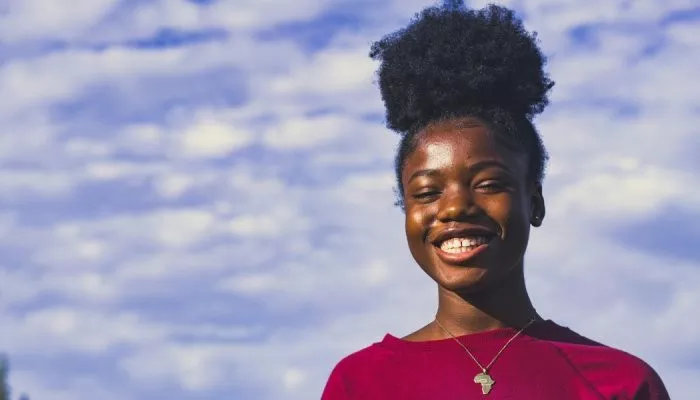In the bustling markets of N’Djamena, Chad’s capital, Ache Moussa’s stall attracts numerous customers eager to have their long plaits treated with a special paste. This ritual, rich in tradition, is seeing a resurgence as natural and local haircare products gain popularity across Africa.
Moussa applies a traditional mixture of cherry seeds, cloves, and Chebe seeds to each strand of hair, from root to tip. Users believe this recipe promotes longer, more lustrous hair. Across Africa, many are moving away from chemical cosmetics, fearing their potential cancer risks, and turning to natural alternatives.
At her Al-Hafia Market stall, Moussa crafts the client’s hair into a Gourone, a traditional style featuring large plaits and thin braids. This skill, Moussa says, is inherited through generations. “We learned it from our mothers, who learned from their grandmothers,” she explains. In their village, Chebe powder is the exclusive ingredient for braiding hair.
Simple Yet Effective Ancestral Recipe
Moussa’s recipe involves roasting and crushing Chebe seeds, a shrub abundant in the Guera region of central Chad. She adds cherry seeds and cloves for fragrance, creating a spicy scent that lingers even after washing. Each hair treatment costs 2,000 Central African francs ($3.20), a luxury in a country ranked as the second least developed by the United Nations.
Time-Consuming but Rewarding Routine
A Chebe treatment session can last for hours. Nsibentum, a “hair specialist” from Congo-Brazzaville, attributes the long hair of Chadian women not to the miraculous properties of Chebe, but to the time invested in hair care. “Time spent on regular care will make your hair grow,” he advises. Despite its reputation as a lengthy ordeal, Nsibentum’s social media presence highlights the benefits of traditional African hair rituals.
Embracing Natural Hair
Manoubia Abdel-Nasser Kadergueli, who produces her own Chebe hair products under the brand Mandé Balla Cosmétic, notes a shift towards more natural hair-care habits among Chadian women. This trend, which began in the United States in the 2000s as “nappy” (a blend of “natural” and “happy”), is now spreading across Africa.
Kadergueli and her cousins prepare hair products in their family courtyard, cleaning seeds and grinding them into powders and oils. Once a week, she sells these products in a central N’Djamena hotel lobby, catering mostly to international customers. Among them is Aloys de Gonzague Niyoyita, a 50-year-old Canadian resident who credits the length and health of his dreadlocks to Kadergueli’s products.
For Nsibentum, Chebe has become a symbol of national pride, representing the rich cultural heritage and dedication to natural beauty in Chad.


